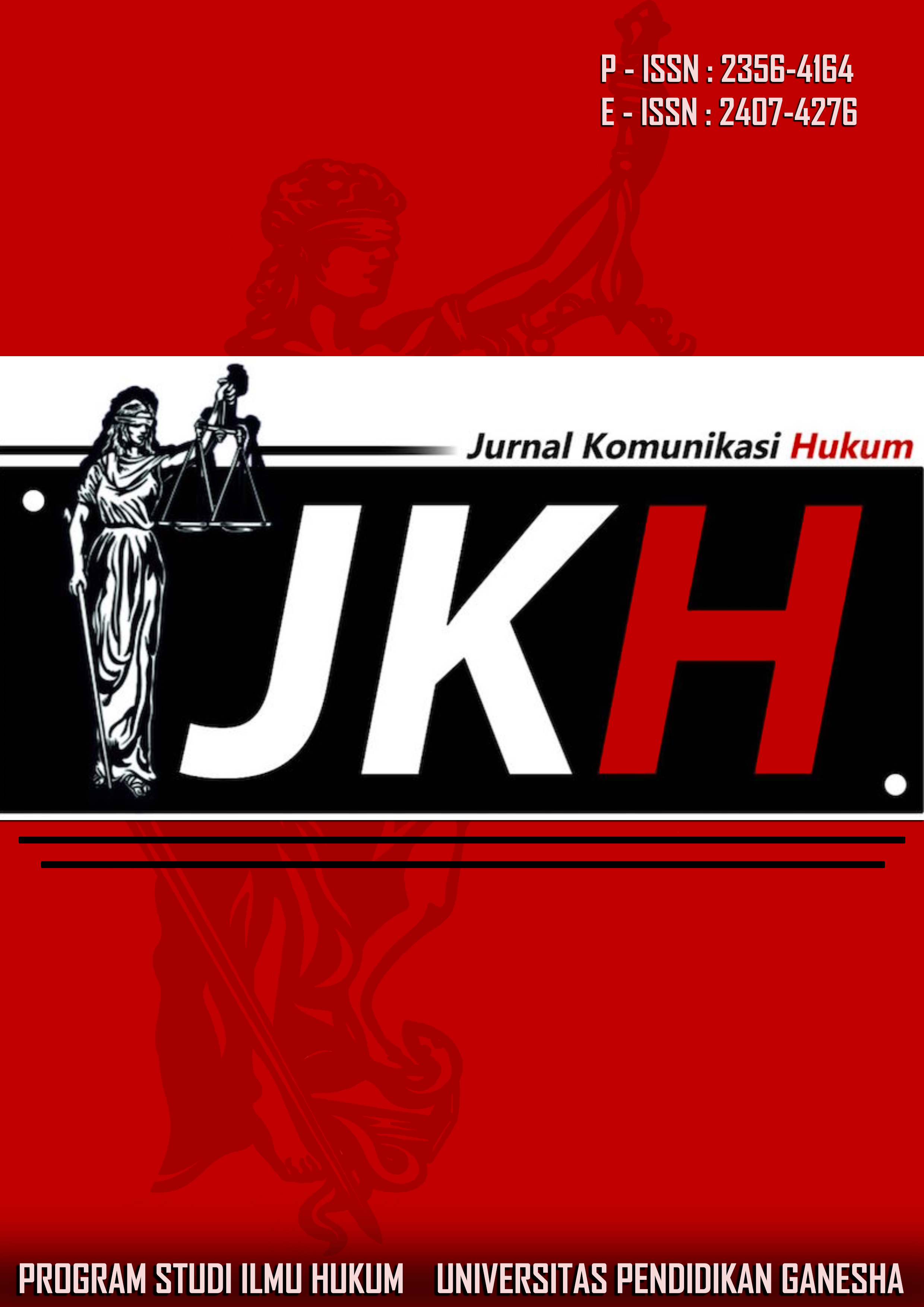PENYELESAIAN PERKARA PIDANA ANAK MELALUI PERADILAN ADAT NIAS
DOI:
https://doi.org/10.23887/jkh.v5i1.16750Abstract
Hal mendasar di dalam Undang-Undang Nomor 11 Tahun 2012 tentang Sistem Peradilan Pidana Anak yaitu adanya pengaturan tentang diversi yang menggunakan pendekatan keadilan restoratif (restorative justice). Diversi sebagaimana telah diatur tersebut, masih memiliki berbagai kelemahan. Kelemahan-kelemahan diversi tersebut antara lain, pada saat proses diversi : ketidakseimbangan kedudukan para pihak (korban dan pelaku). Pada saat diversi gagal : hasil musyawarah rawan disalahgunakan. Pada saat pasca diversi : kurangnya pemantauan keseharian anak. Musyawaraha berdasarkan fondrakö yang dikenal dalam masyarakat Nias, dapat menjawab kelemahan-kelemahan diversi antara lain : menyeimbangkan kedudukan para pihak (korban dan pelaku); hasil musyawarah tidak disalahgunakan; pemantauan keseharian anak pasca diversi sangat optimal.
Kata Kunci : Fondrako, Diversi, Keadilan Restoratif
Downloads
Published
How to Cite
Issue
Section
License
Authors who publish with this journal agree to the following terms:- Authors retain copyright and grant the journal right of first publication with the work simultaneously licensed under a Creative Commons Attribution License that allows others to share the work with an acknowledgement of the work's authorship and initial publication in this journal.
- Authors are able to enter into separate, additional contractual arrangements for the non-exclusive distribution of the journal's published version of the work (e.g., post it to an institutional repository or publish it in a book), with an acknowledgement of its initial publication in this journal.
- Authors are permitted and encouraged to post their work online (e.g., in institutional repositories or on their website) prior to and during the submission process, as it can lead to productive exchanges, as well as earlier and greater citation of published work (See The Effect of Open Access).
Authors who publish with this journal agree to the following terms:
- Authors retain copyright and grant the journal right of first publication, with the work [SPECIFY PERIOD OF TIME] after publication simultaneously licensed under aCreative Commons Attribution License that allows others to share the work with an acknowledgement of the work's authorship and initial publication in this journal.
- Authors are able to enter into separate, additional contractual arrangements for the non-exclusive distribution of the journal's published version of the work (e.g., post it to an institutional repository or publish it in a book), with an acknowledgement of its initial publication in this journal.
- Authors are permitted and encouraged to post their work online (e.g., in institutional repositories or on their website) prior to and during the submission process, as it can lead to productive exchanges, as well as earlier and greater citation of published work (See The Effect of Open Access).












